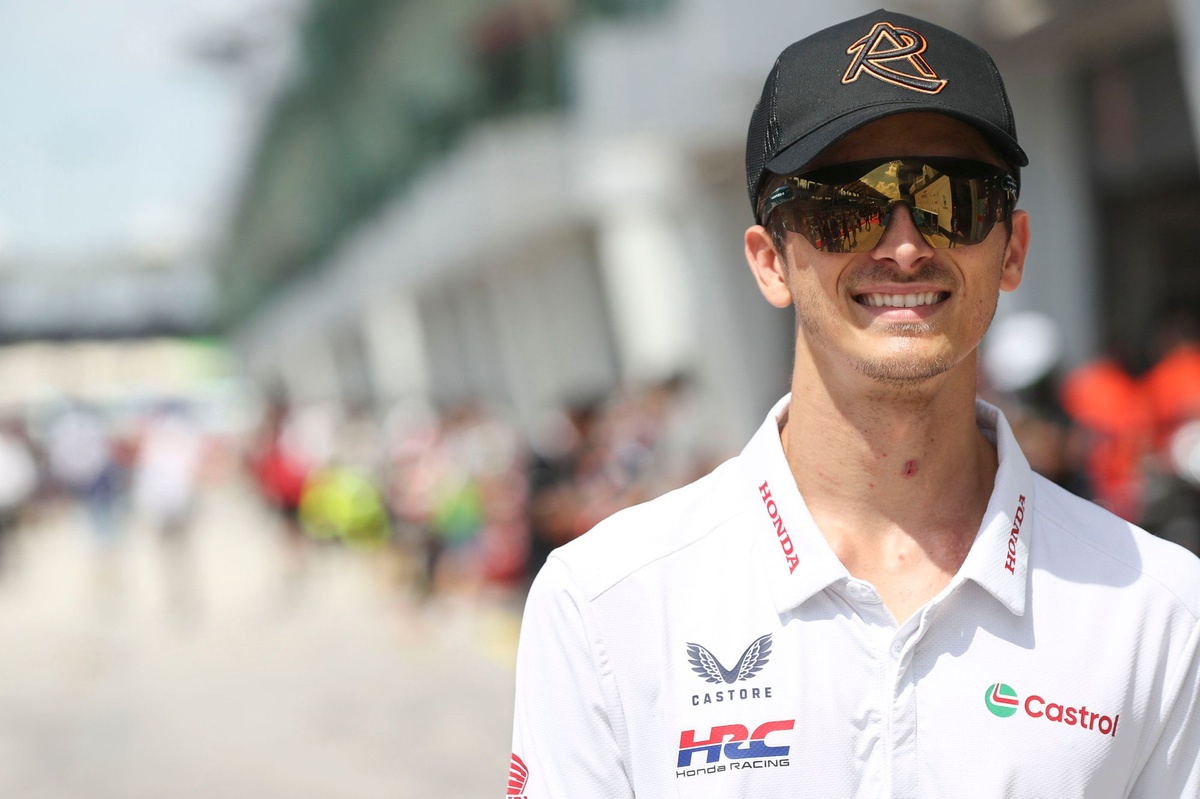
Luca Marini on growth at Honda and why 2026 is his best chance to win in MotoGP
When Marc Marquez announced his departure from Honda at the end of 2023, it sparked something in Luca Marini. It reminded him of his childhood dreams – riding in the same iconic colours once worn by his half-brother Valentino Rossi at HRC. Leaving behind the comfort and solid results of his family-run VR46 Racing Team, the Italian took a leap of faith to join Honda’s ‘resurrection’ project at its lowest point.
Now, as the team shows clear signs of recovery, the 28-year-old speaks with Motorsport.com about Honda’s transformation, his own evolution as a rider and the mindset driving him through one of MotoGP’s toughest challenges.
Motorsport: From the outside, you come across as a very private person, someone who keeps his personal life to himself and doesn’t enjoy media attention.
Luca Marini: Yeah, does it seem that way? I just think I’m someone people don’t talk about much, that’s all. Probably because I’m calm and don’t do crazy things. I like my private life to stay private. I’m not very extroverted, but if people talk about me, I’m happy. I don’t do anything to avoid it.
The recent good results — especially the podiums by Joan Mir in Japan and Malaysia — do they confirm that Honda is on the right path?
Yes, absolutely. The step forward has been huge, but it’s still not enough. Now comes the hardest part. When you’re just three tenths off the pace needed to win, closing that final gap is the most difficult thing to do.
Personally, in what ways do you feel you’ve contributed to Honda’s progress?
In many ways, honestly. Since I joined Honda, a lot has changed — especially the way we work. We’ve really improved that. We have more people now; before, there were fewer staff working directly with the riders and the team. On the technical side, I’ve helped in many areas. I think my biggest contribution has been trying to give engineers real answers — not just asking for things, but working together to find solutions to every problem.
In a way, could we say you’re trying to bring your own personality and work ethic into the team? Early in 2023, it seemed like Honda had lost its direction and everyone was pulling in different ways.
You could say that, yes. I love racing and winning, working on every little detail and always pushing at 100%. In the past, Honda relied a lot on Marc’s talent — because with his ability, he could make up for what the bike lacked — but they lost their way a bit with technical development.
People say you’re an engineer disguised as a rider. Is that technical mindset part of your job, or is it just your personality?
Everyone’s different. Personally, I’ve always loved the technical side of motorcycles. I’m passionate about finding the bike’s maximum performance from that perspective. Sometimes it’s a problem, because some riders don’t care about the bike’s mechanics — they just push 100%, and if it works, great. But I like to know, understand, and learn how everything works.
Luca Marini, Honda HRC
Photo by: Robert Cianflone / Getty Images
Among those skills is your ability to read data and telemetry, something not every rider can do.
Yes, I’ve always been curious about that. I’ve learned a lot from the engineers I’ve worked with in MotoGP. Even in Moto2, I used Wintax (a telemetry analysis software), which is a great [way to learn]. I was always asking engineers, my crew chief, data technicians… always learning something new. Now I can do it all myself.
Another one of your interests is learning Japanese.
Yes, I tried hard at the beginning of the year, but after the Suzuka accident I slowed down a bit. It’s really difficult, but it’s helped me understand them better.
Read Also:
MotoGPLuca Marini injured in Suzuka fall, Ai Ogura undergoes surgery
Are you learning Japanese out of respect for the factory, or more to communicate better with the engineers and gain an advantage?
Honestly, I’ve always loved Japan — the culture, the country itself. I wanted to learn more and understand them more deeply. When you work with Japanese people, you quickly realise it’s a completely different world compared to Europe. They have a very distinct mindset and culture. Even when we speak English, I want to express myself in ways that are more comfortable for them — so they clearly understand what’s a yes and what’s a no.
Improving communication is key. For them, speaking English is really hard; it’s a completely different language structure. I realised that quickly when I joined Honda, so I try to communicate better every time. It would be perfect to speak Japanese like Taka [Takaaki Nakagami, HRC test rider] and talk to the engineers in their language, but it’s very hard. I’m struggling with it, but I can say a few words already, and I’ll keep improving in the future.
When, two years ago in Malaysia, word got out that you were negotiating with Honda, you must have had expectations or dreams. Have they come true?
Yes, absolutely. We’ve reached this point faster than I expected. I’m very happy — it means we’ve worked well, and that by following my feedback, the bike has improved at an exponential rate.
In your last year with VR46, you scored two podiums, two poles, and finished eighth in the championship. Do you understand why some people thought your move to Honda wasn’t the right one?
Yes, maybe some people didn’t understand the change, especially at the start of last season. But now, the results speak differently. I still have another year on my contract — another chance to grow with Honda and try to win races next season, in 2026, which I think will be the best opportunity of my life.
So your goal is to win races next year?
Of course, absolutely.
Joan Mir, Honda HRC
Photo by: Gold and Goose Photography / LAT Images / via Getty Images
Early last year, you were often seen in the paddock with the VR46 guys, but now less so. Is that part of a process of independence, of finding your own path?
Not really. Whenever I can, I spend time with them. I’m not going through any process of independence — I just try to give 100% every weekend. It’s true that in a factory team there are more events and meetings than in a private team, so it’s harder to find time to hang out with the academy guys. Now Bez (Marco Bezzecchi) and Pecco (Bagnaia) are also in factory teams, so it’s not easy to be together. But between us, everything is as normal as always.
The VR46 Riders Academy produced an incredible generation of Italian riders — Morbidelli, Pecco, Bezzecchi, yourself — but right now, there doesn’t seem to be a new wave coming through. Has the VR46 system run its course as a training ground, with the focus now more on the MotoGP team?
I’m not the right person to answer that question.
But you’ve been part of the academy since the very beginning.
Yes, that’s true. In my generation there were so many riders — from 1996 to 1999, there were a lot of Italian kids on minibikes, MiniGP, PreGP, Moto3… now there are fewer. It’s harder, it costs a lot of money, it’s complicated. I think the academy helped us take that next step. They’re now looking for new young riders, a couple have already joined, and we’ll try to help them reach the world championship. But that’s really something you should ask the people working on it every day. We riders just focus on riding.
You’re known for being calm, composed — you practice yoga, meditation, and focus a lot on mental preparation. How important is mental work for MotoGP riders today?
It’s definitely important. But every rider is different. I’ve learned to understand myself better, and through that, I’ve realised everyone’s unique — different thoughts, feelings, ways of communicating. Each rider has to discover his own path, his own way to bring out his talent and show it on track.
Luca Marini, Honda HRC
Photo by: Mirco Lazzari GP – Getty Images
Unlike most riders, you don’t have a personal assistant — you prepare your helmet and leathers yourself. That’s unusual, especially considering you’re part of the ‘royal family’ of the paddock, as Valentino Rossi’s brother. Why no assistant?
I take care of my own helmet and leathers, yes, but of course the people at AGV and Dainese help me, and so do the team members. The team is my family — if I need something, they do it right away. It’s all very easy for me to manage on my own.
You also travel alone, without a manager or assistant, unlike most riders.
Yes, I like traveling alone. But in the end, we usually leave from Bologna, and there are always plenty of people heading to the races.
How do you see yourself in 10 years? Do you think you’ll still be in motorcycling, or will you take a different path?
Ten years is too far ahead for me. I can only think two or three years into the future, and what I’d love is to stay here with Honda. That would be perfect. I really love the job, the team, everything. I’d like to be here, winning races.
Read Also:
MotoGPHonda on the brink of losing MotoGP’s top concession perks
MotoGPYamaha toughens its stance on Fabio Quartararo
We want your opinion!
What would you like to see on Motorsport.com?
Take our 5 minute survey.
– The Motorsport.com Team




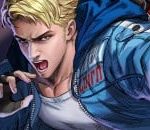
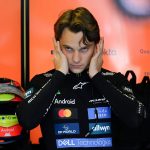
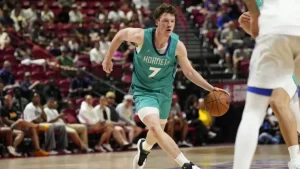
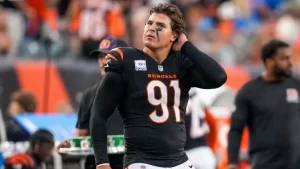
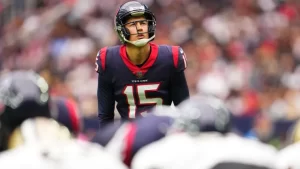
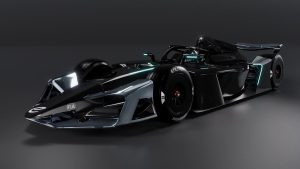
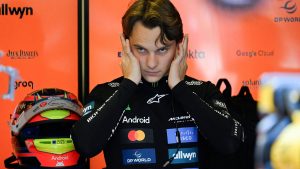
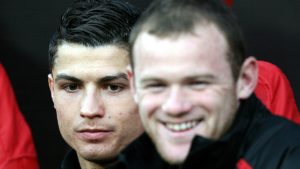
Ok